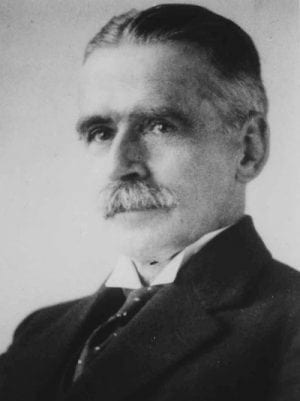
Dr. Sir George Frederic Still
Dr. Sir George Frederic Still: Pioneering Researcher in Pediatrics and ADHD
Introduction
Dr. Sir George Frederic Still (1868-1941) was a prominent British pediatrician whose groundbreaking work revolutionized the field of pediatrics. His extensive research and clinical expertise significantly contributed to our understanding of various childhood disorders, most notably Attention Deficit Hyperactivity Disorder (ADHD). This article delves into the life and achievements of Dr. Still, highlighting his remarkable contributions to the field of pediatric medicine and his pioneering work on ADHD.
Early Life and Education
Born on February 27, 1868, in Upper Clapton, London, George Frederic Still exhibited an early aptitude for science and medicine. He pursued his medical education at King’s College London, where he excelled in his studies, displaying an exceptional passion for understanding childhood illnesses and disorders.
Professional Achievements
Dr. Still’s career spanned over four decades, during which he made significant contributions to the field of pediatrics. He became a leading figure at the Great Ormond Street Hospital for Children in London, a prestigious institution known for its pioneering work in pediatric medicine. Here, Dr. Still worked tirelessly to advance the understanding and treatment of childhood diseases.
ADHD Research and Discoveries
One of Dr. Still’s most enduring legacies is his groundbreaking research on Attention Deficit Hyperactivity Disorder (ADHD). In 1902, he published a series of lectures titled “Some Abnormal Psychical Conditions in Children,” where he introduced the concept of what he termed “defect of moral control.” This referred to a condition in children characterized by impulsivity, inattention, and hyperactivity, which we now recognize as core features of ADHD.
Dr. Still’s observations were revolutionary for their time, as they challenged prevailing notions about childhood behavior and mental health. He emphasized the biological basis of these conditions, stressing that they were not solely the result of poor parenting or environmental factors.
Legacy and Continued Influence
Dr. Still’s pioneering work on ADHD laid the foundation for modern research and clinical understanding of the disorder. His insights paved the way for subsequent generations of researchers, psychologists, and educators to develop effective interventions and support systems for children with ADHD.
In recognition of his outstanding contributions to the field of medicine, Dr. Still was knighted in 1937, becoming Sir George Frederic Still. His legacy endures not only through the continued study and treatment of ADHD but also through the broader impact he had on pediatric medicine as a whole.
Conclusion
Dr. Sir George Frederic Still’s life and work stand as a testament to the power of scientific inquiry and a dedication to improving the lives of children. His groundbreaking research on ADHD revolutionized our understanding of childhood behavioral disorders and paved the way for more effective interventions and support systems.
Today, his name is forever associated with the field of pediatric medicine, and his contributions continue to inspire generations of healthcare professionals and researchers. Dr. Still’s legacy serves as a reminder of the immense impact that one individual can have on the advancement of medical knowledge and the betterment of society as a whole.
